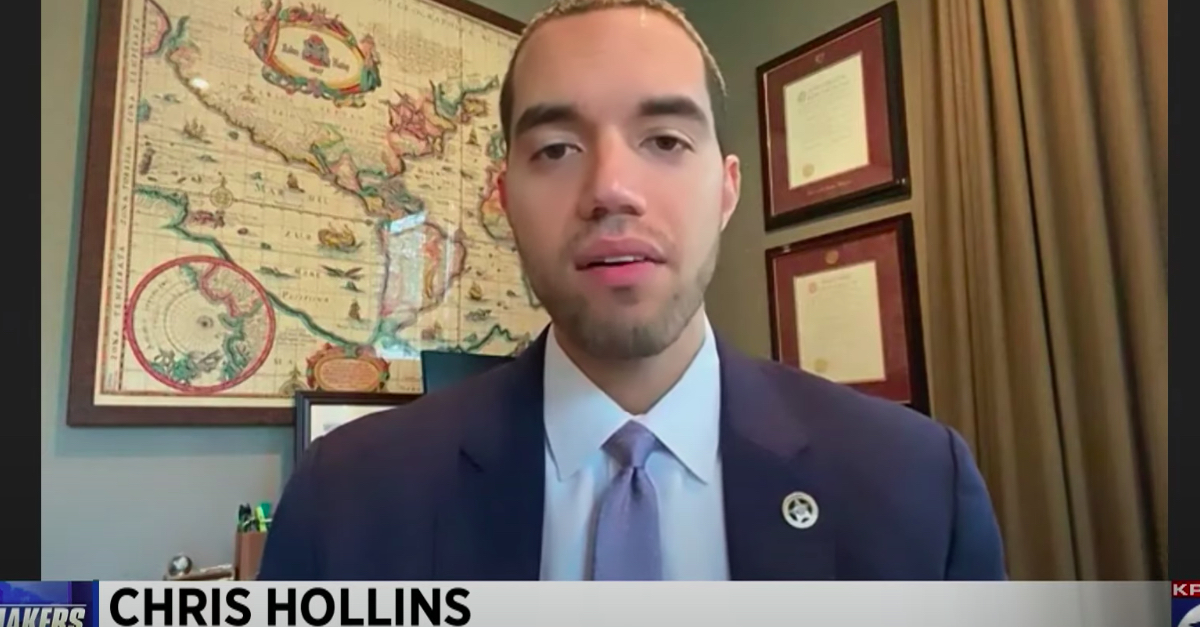
Harris County Clerk Chris Hollins
The Texas Supreme Court on Wednesday ruled that a Harris County elections administrator is barred by state law from sending unsolicited mail-in ballots applications to all of the estimated 2.4 million eligible voters in the state’s most populous county. The county, which includes Houston and has a larger population than 25 states, has increasingly become a Democratic stronghold in recent years, making it a target of GOP attacks against plans to increase voter turnout.
The court, which is composed entirely of Republican justices, avoided addressing whether voting through mail is a safer alternative to casting an in-person ballot amid a resurgent pandemic. The court reasoned that such policy determinations are the prerogative of the state’s legislature.
“Whether voting by mail should be restricted has been a subject of intense political debate, in this State and throughout the country,” the court wrote. “There are concerns that mail-in ballots can be marked fraudulently without the voters’ knowledge or consent and ‘harvested’—returned by someone else, sometimes in bulk.”
“There are countervailing concerns that requiring in-person voting discourages some from participating who otherwise would because it is harder and, especially in the current pandemic environment, not as safe,” the court continued. “We, of course, take no side in these policy debates, which we leave to legislators and others. The question before us is not whether voting by mail is good policy or not, but what policy the Legislature has enacted. It is purely a question of law.”
Texas law limits mail-in voting to persons with disabilities as well as those age 65 and older. However, led by Harris County Clerk Chris Hollins (D), the state’s largest Democratic stronghold has spearheaded several efforts aimed at increasing voter access, including adding more polling locations for Election Day and more than tripling the number of locations for early voting.
But the Supreme Court rejected Hollins’s claim that his duty to oversee the county’s early voting also gave him the “implied authority” to send out the unsolicited ballot applications regardless of whether the potential recipient is eligible to legally vote by mail.
“Hollins’ proposed mailing is unprecedented in Texas elections and thus cannot be said ever to have been considered necessary and indispensable,” the court wrote, previously clarifying that implied power must be “indispensable” to express authority. “He does not argue that any other election official has ever proposed to mass-mail applications to ineligible voters.”
“This year’s election process is occurring during the COVID-19 pandemic, but Hollins has not explained why or how the pandemic has rendered inadequate the usual distribution of ballot applications on request, much less made mass mailings of unsolicited ballot applications necessary or indispensable to voting by mail,” the justices wrote, adding that, “As the trial court recognized, this case turns only on the powers granted by the Legislature, not COVID-19.”
According to the Texas Tribune, the justices “sounded skeptical of Hollis’ plan” during Sept. 30 oral arguments, asking whether it might “facilitate voter fraud.”
The ballot applications will remain accessible online and can still be distributed by political campaigns or private organizations, provided they are not sent directly by a government official. Hollins’s office has already sent out ballot applications to voters over age 65. The state Supreme Court remanded the case back down to the trial court for entry of a temporary injunction to stop the mass mailing.
Hollins last month was also sued by the Harris County GOP and several Republican political groups for extending the county’s early voting period in accordance with Gov. Greg Abbott’s executive order.
But in a second Harris County-related decision on Wednesday, the Supreme Court sided with Hollins, saying the challenge came too late and would “threaten voter confusion.”
Read the full opinion below:
10 7 20 Texas v Hollins Opinion by Law&Crime on Scribd
[image via KPRC 2 screengrab]